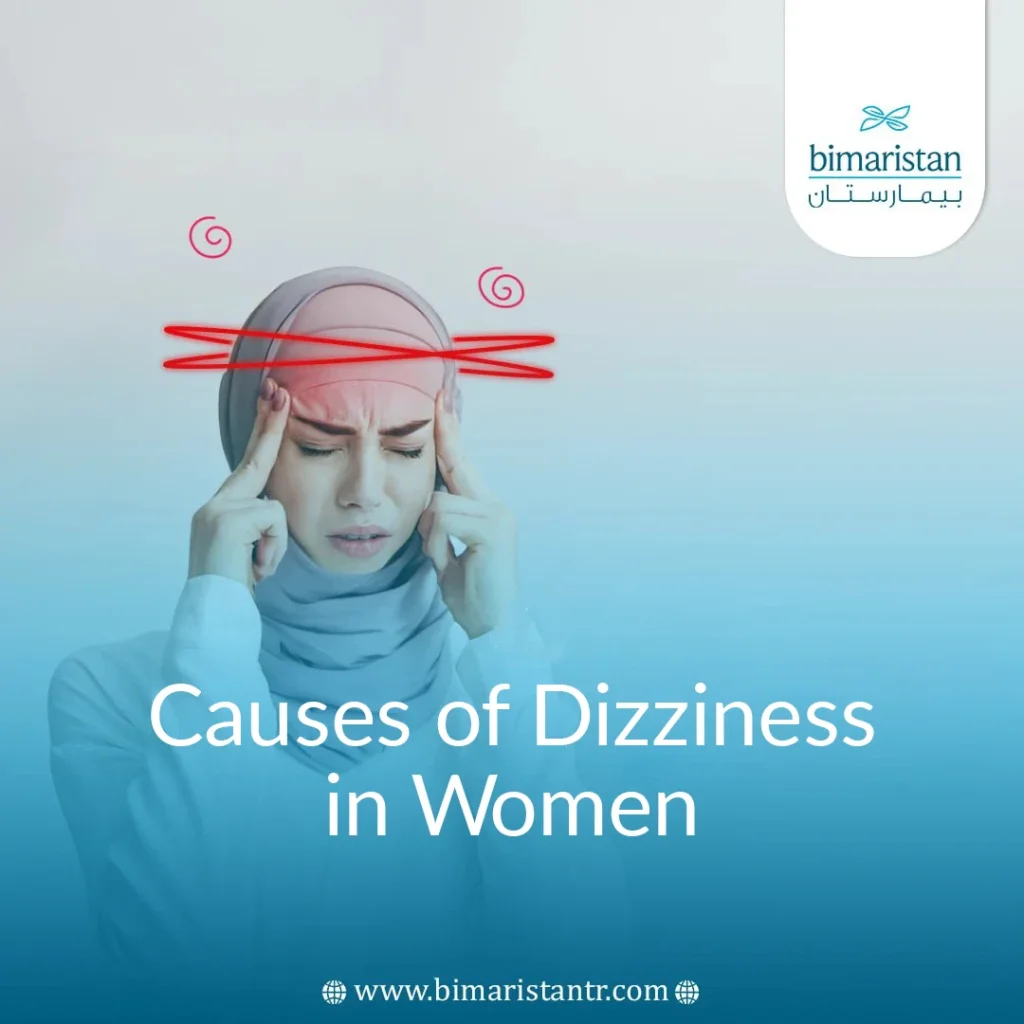The causes of dizziness in women are diverse, So we wrote this article to help you identify common causes and their treatment.
Some people believe vertigo is the same as dizziness, but we must differentiate between them. So, what is Vertigo? Vertigo in women is a sensation in which the environment around the patient is spinning, or the patient feels like they are spinning themselves. In contrast, in women, dizziness in the head is a feeling of lightness and a sensation of faintness and instability.
Mild, recurrent dizziness in women can be one of the biggest obstacles in a woman’s daily life, as it significantly affects her productivity and her relationship with her spouse and children. But what are the causes of lightheadedness in women? And are they serious? Find out in this article.
Causes of dizziness in women
Dizziness is considered one of the most common symptoms for which patients consult doctors. First, we must differentiate between several similar terms, which are:
- Vertigo: A sensation of the environment spinning around the patient or the patient spinning themselves.
- Loss of balance: Falling due to a malfunction in the signals coming to the brain from the balance centers.
- Dizziness: Light-headedness and a feeling of faintness and instability.
Each of them has one or several causes that lead to the appearance of these symptoms. These causes are divided according to their pathological origin and the location of the injury. It may be difficult to determine what would cause dizziness in women directly before conducting tests and detailing the medical history.
Dizziness due to ear disorders
The ear (inner ear) is an important organ in the process of balance and maintaining the patient’s position, so most diseases affecting the inner ear lead to dizziness, such as:
Benign paroxysmal positional vertigo (BPPV)
It is the most common cause of dizziness in patients and more common in women and older ages. This dizziness occurs when the patient gets up from bed or suddenly moves their head.
Its triggers include inflammation of the inner ear. Benign paroxysmal positional vertigo (BPPV) occurs due to changes in the positions of some particles in the inner ear fluids. It often heals on its own within several days or weeks.
If it becomes concerning for the patient, it is preferable to consult a specialist doctor who will treat it through some controlled and deliberate movements of the head (to return the particles to their places) and may prescribe some medications for continuous intractable cases.
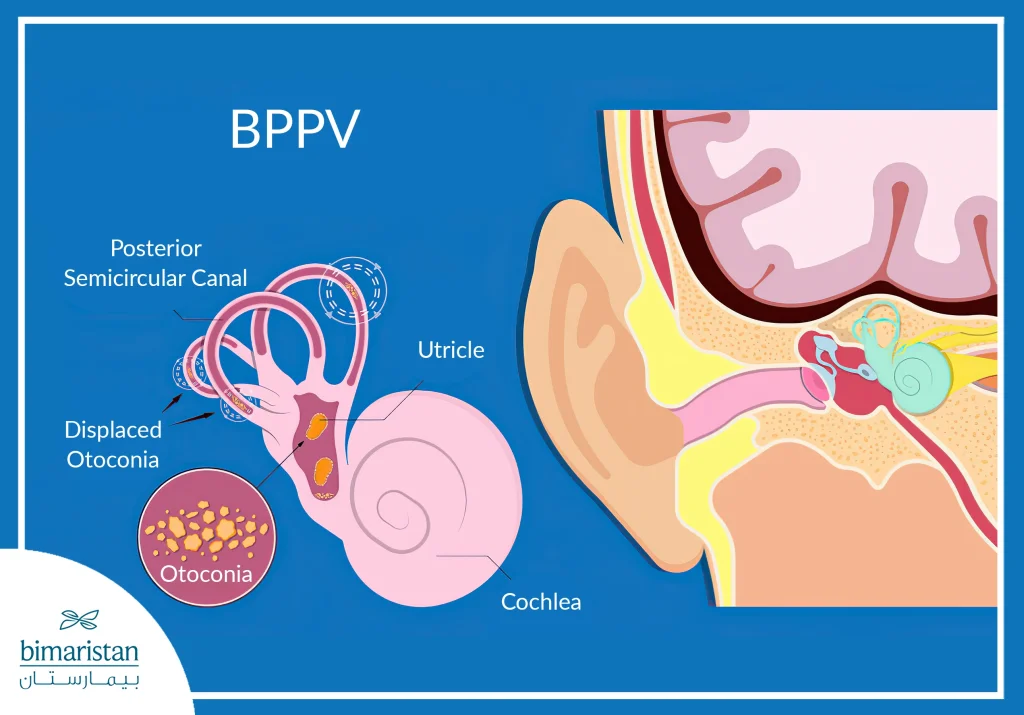
Meniere’s disease
It is one of the most important causes of continuous dizziness in women. It occurs due to a disturbance in the size of the fluids in the inner ear, which may arise due to inflammation of the membranes or due to allergies and immune system disorders, leading to several symptoms, the most important of which are:
- Continuous sudden dizziness that may last for several hours
- Ringing in the ear
- Sudden hearing loss
- Feeling of nausea and vomiting
Meniere’s disease begins in one ear initially and progresses over time to affect both ears. Its treatment is symptomatic (aimed at correcting dizziness and relieving nausea and vomiting), and there are some dietary recommendations to follow a low-salt diet and avoid smoking to alleviate the symptoms. According to statistics, it affects women slightly more than men, making it one of the most important causes of dizziness in women.
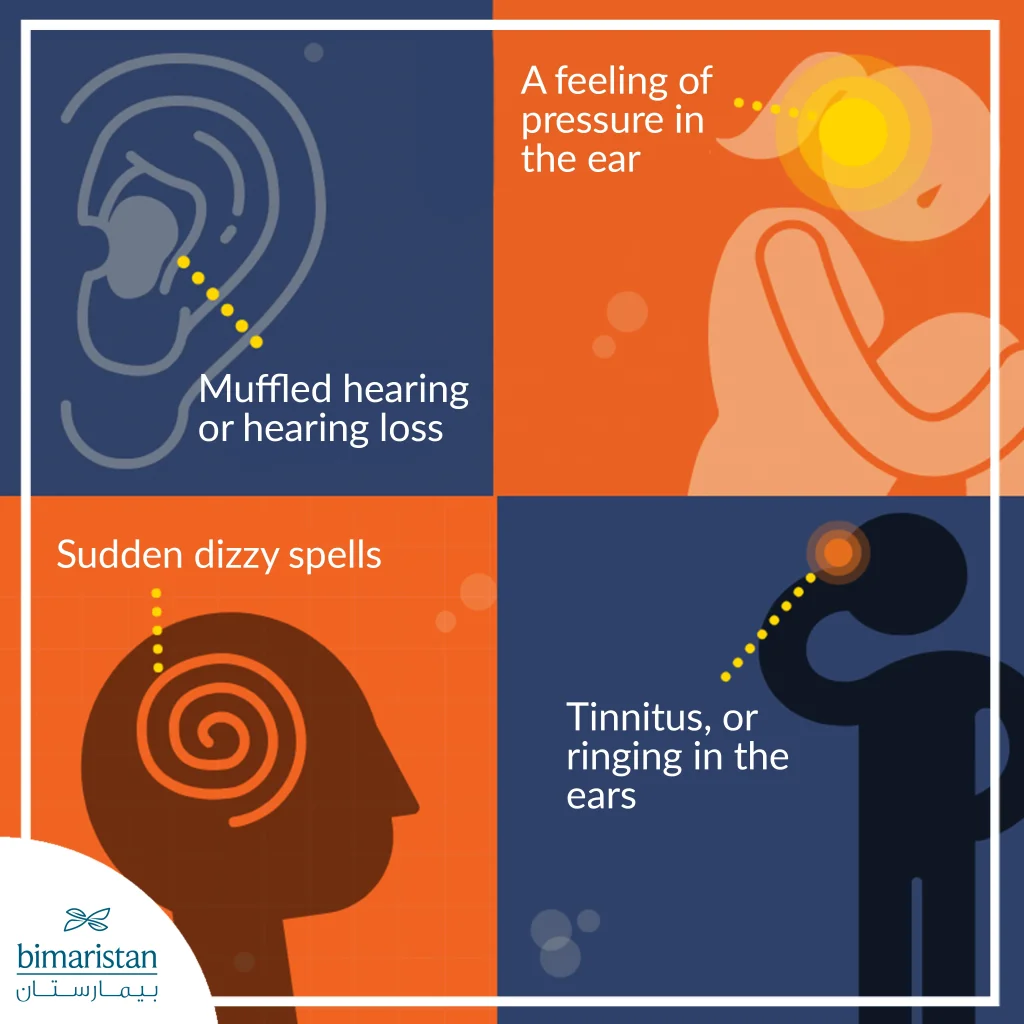
Infection
It can be bacterial or viral. The infection occurs in the inner ear nerves, which transmit balance signals to the brain (Vestibular Neuritis). It leads to continuous dizziness and sudden vertigo lasting for days, accompanied by nausea and vomiting.
If the patient suffers from ringing in the ears or hearing loss in addition to continuous dizziness, the infection may affect the nerves that transmit the sense of hearing to the brain (the auditory nerve), or the inflammation may occur in the inner ear labyrinth (the labyrinth is the bone and membrane that make up the inner ear).
Treatment here involves managing the symptoms along with the addition of antibiotics and antiviral medications, and in severe cases, we may need injections of cortisone derivatives.
Motion sickness
It occurs mainly at sea, where the movement of the waves causes many varying signals to reach the brain from the inner ear, leading to dizziness, vertigo, nausea, and vomiting.
Dizziness due to blood and vascular causes
Disorders in blood and blood vessels circulation are among the most common causes of dizziness in women, especially, sometimes characterized by fainting and loss of balance. The reason here is the brain not receiving sufficient oxygen, including:
Low blood pressure
It means the dilation of blood vessels leading to decreased blood flow in them and thus a decrease in blood supply to the brain, causing dizziness and headache in women.
Some medications can cause a drop in blood pressure, leading to dizziness, and one of the most common causes is taking a blood pressure-lowering drug by a patient with high arterial pressure with sexual enhancers (such as sildenafil), causing a severe drop in blood pressure, which can be dangerous. You can read more about hypertension in women.
Some patients may experience dizziness and low blood pressure when they rise quickly from a sitting position, a condition called Orthostatic Hypotension.
Or the cause of low blood pressure may not be vasodilation but rather blood loss, in the case of heavy bleeding, this condition is one of the causes of dizziness in women when they have heavy menstrual periods and there is a significant loss of blood.
Sometimes the cause of low blood pressure is a life-threatening condition such as myocardial infarction or cardiac arrhythmia (i.e., the patient feels palpitations), because the heart here does not pump sufficient amounts of blood to the brain, leading to continuous dizziness, which is one of the most important causes of dizziness in women.
Anemia
It is considered one of the most common causes of dizziness in women. Due to their menstrual cycle (menstruation) and continuous blood loss, most women have anemia diagnosed by pallor, weakness, and fatigue in addition to dizziness. Women are advised to increase their intake of iron-rich foods.
Sigmoid sinus stenosis
It is described as a narrowing of the sigmoid sinus, which supplies blood to the brain in the neck. When the narrowing reaches severe stages, it can lead to sudden dizziness and many neurological symptoms.
Dizziness due to hormonal and metabolic causes
Changes in hormones (especially in women) and metabolic disorders in the human body are considered among the most important causes of dizziness in women. Among the most important of these:
Pregnancy
Pregnancy is one of the causes of dizziness in women because, in the first trimester of pregnancy, they experience many hormonal changes that cause dizziness and nausea. Also, if they suffer from severe morning sickness, it alone is one of the most important causes of dizziness in pregnant women due to dehydration and loss of nutrients.
In the second and third trimesters of pregnancy, especially when the patient’s belly grows, lying on the back puts pressure on the main blood vessels behind the uterus, obstructing blood flow and causing dizziness. Therefore, pregnant women are advised to lie on their left side.
Low blood sugar
This leads to severe dizziness with sweating and excessive nervousness, usually occurring in diabetic patients who mistakenly or intentionally take an overdose of blood sugar-lowering medication. In rarer cases, there may be an insulin-secreting tumor that lowers blood sugar, or the patient may not have eaten for a long time, causing low blood sugar.
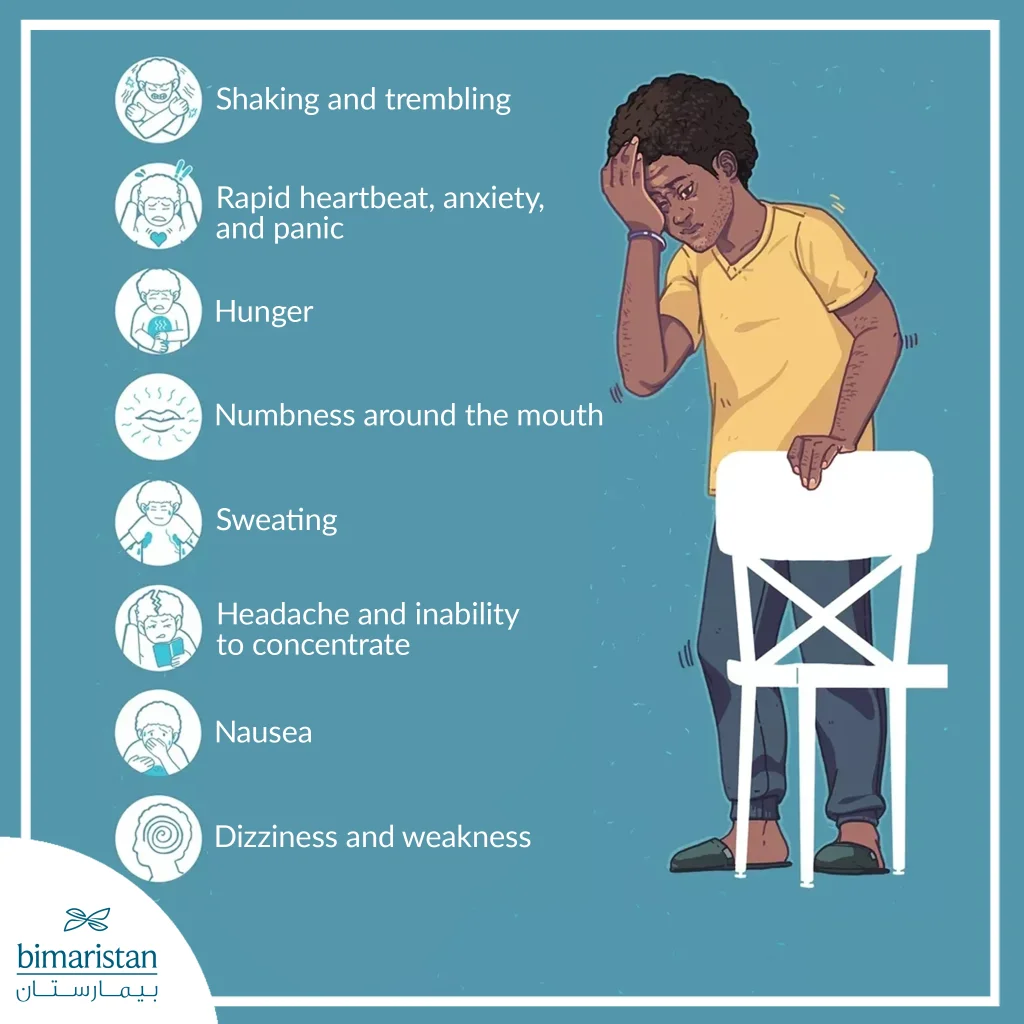
Dizziness due to neurological causes
Neurological causes are among the most important causes of dizziness in women, especially, and tend to be accompanied by other symptoms depending on the underlying disease, such as headache, muscle weakness and spasms, nausea, and many others.
Migraine
Women suffering from migraines have excessive sensitivity to bright light and loud noises, leading to blurred vision and migraine headaches.
Migraine affects women more than men and leads to dizziness due to blurred vision and headaches, so it is considered one of the causes of dizziness in women. It is treated with some specific medications in case of migraine attack, and other medications are given to prevent these attacks.
Excessive nervousness and increased anxiety
They lead to a severe respiratory rate, causing a disturbance in the patient’s blood gases, which causes dizziness. Such causes are common among young women, and the treatment is to calm the person down and make them breathe normally.
Acoustic neuroma
The patient suffers here from dizziness (vertigo), tinnitus in the ear, hearing loss, and numbness in the face. It may arise due to genetic mutations and is treated surgically, and this tumor is benign.
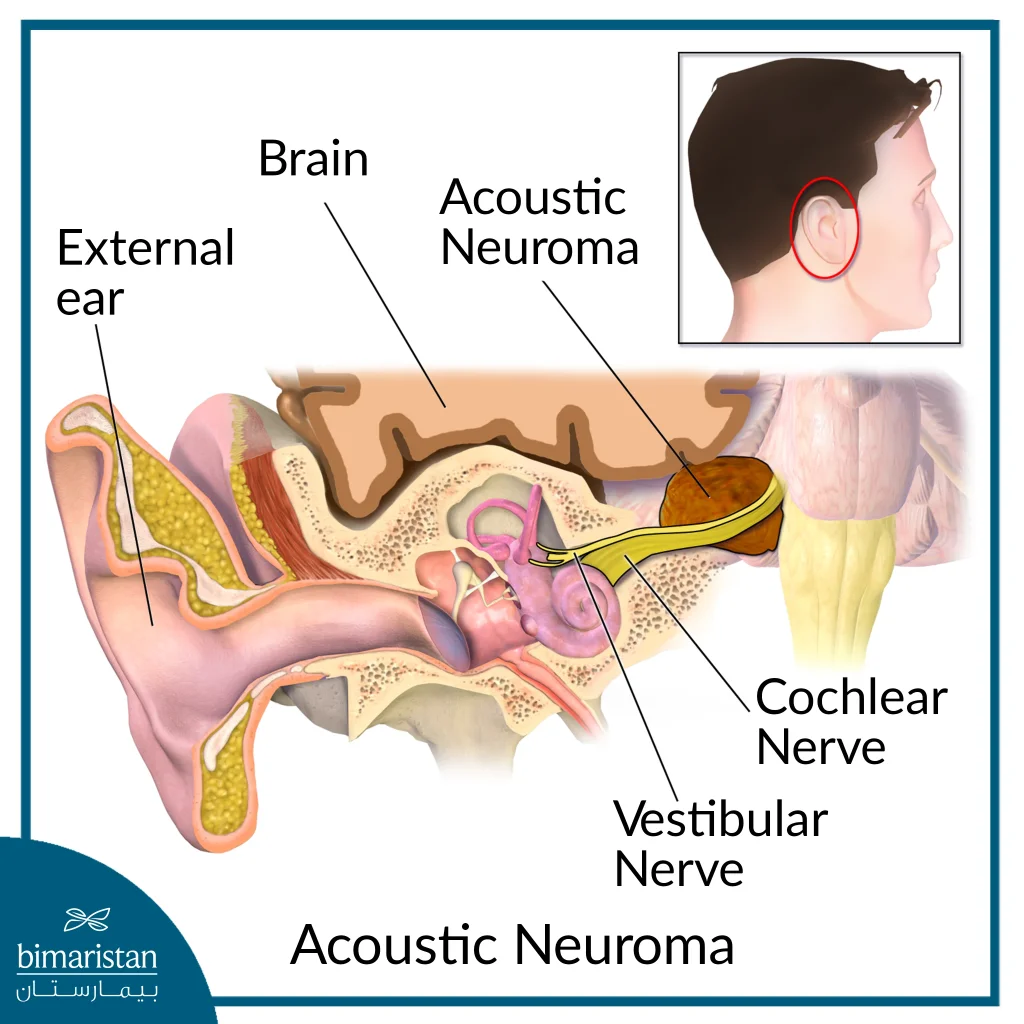
Severe head injuries
Which causes brain damage or severe bleeding, leading to dizziness and fainting, and may lead to death if the injured person is not promptly treated.
Dizziness of cervical origin
The presence of dizziness with continuous neck pain indicates a condition called Cervicalogenic Dizziness. This occurs due to an old neck injury causing spinal cord injury, disrupting the flow of signals from peripheral balance organs to the brain.
There are also many neurological causes of dizziness, including:
- Transient cerebral ischemia
- Brain infarction
- Brain tumors
- Multiple sclerosis
Other causes of dizziness
No matter how much we try, we cannot cover all the causes of dizziness in women as they overlap with many diseases, and the accompanying symptoms help reveal the causes of dizziness and headaches in women. However, among the important causes of dizziness, there are also:
Carbon monoxide poisoning
It is a toxic gas produced by incomplete combustion of materials. Inhaling it can cause dizziness, vomiting, confusion, chest pain, and headache. However, it is a rare cause of dizziness and vomiting in women.
Severe fever and dehydration
They lead to bodily fluid loss and may cause a drop in blood pressure, resulting in confusion, headache, and dizziness. Severe vomiting and diarrhea also lead to dehydration and, thus, dizziness.
Also, vision disorders in both eyes and alcohol consumption lead to dizziness. Here, the cause is clear to the patient, but there are cases where taking a particular medication causes episodes of dizziness, and the most common of these medications are:
- Diuretics
- Aspirin
- Aminoglycoside antibiotics (such as gentamicin)
- Some cancer treatment drugs
If you experience any of the above symptoms or have persistent dizziness, contact the medical center for appropriate medical advice.
References:
- Dizziness and Balance problems, Brain and Spine Foundation.
- Practitioner’s Guide to the Dizzy Patient, Wake Forest.
